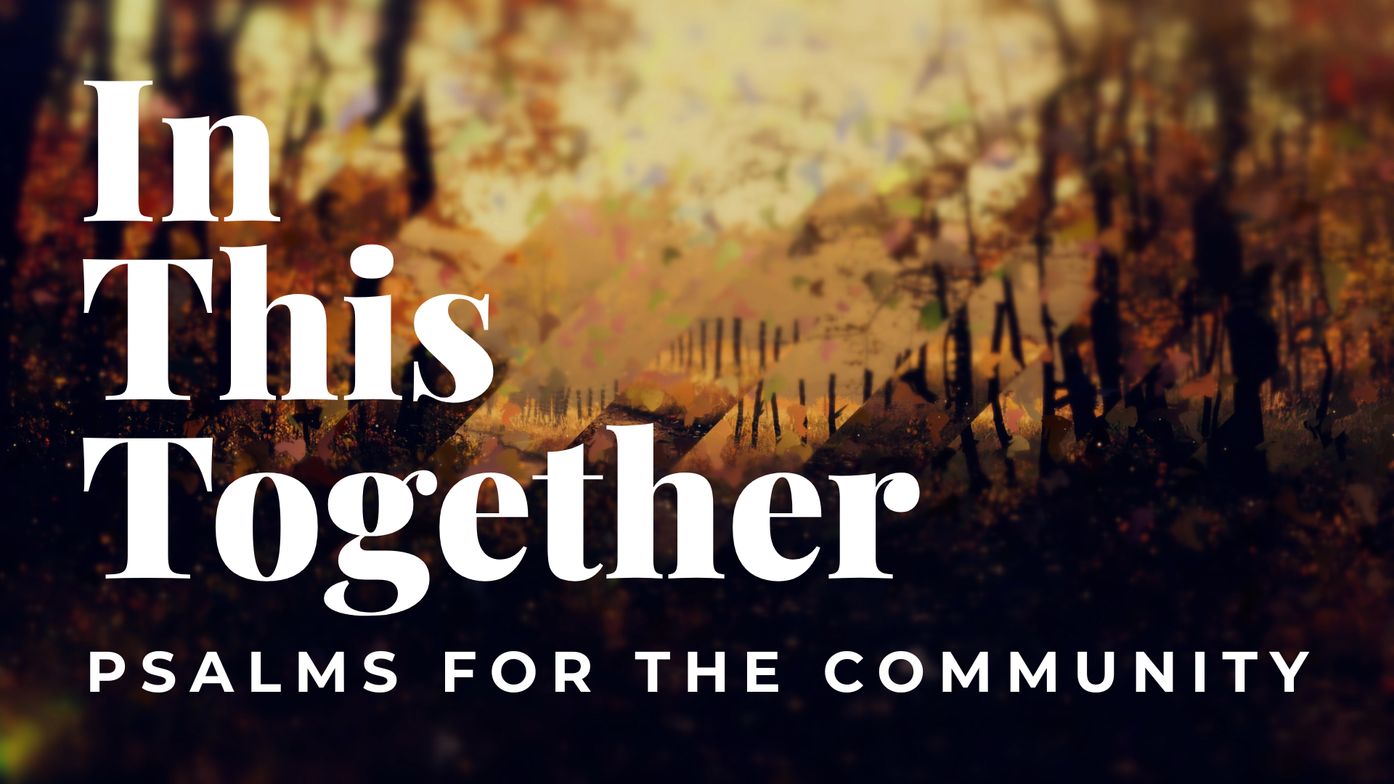
When we think about large crowds gathering together, our minds often go to concerts, sporting events, or busy shopping days. The reason people come together shapes how they treat one another. At concerts, everyone's excited about the same musician. At sporting events, there's a clear divide between opposing fans. On Black Friday, it feels like everyone's your enemy competing for limited deals.
What Does the Bible Say About Unity?
Psalm 133 offers a different perspective on gathering together. This short, three-verse psalm was traditionally sung by pilgrims traveling up to Jerusalem for religious festivals. Picture thousands of people converging on a city that normally held 8,000-15,000 residents, swelling to six times that size during feast days. Resources would be stretched thin, patience would run short, and competition for basic needs would be fierce.
Yet the psalm declares: "Behold how good and pleasant it is when brothers dwell in unity."
Why Should We Pursue Unity in Relationships?
True unity isn't just the absence of conflict - it's the presence of authentic relationships. When we really understand Psalm 133, we begin to think of unity in terms of relationships rather than simply avoiding disagreements.
God Promises Blessing Through Unity
The psalm ends with a powerful promise: "For there the Lord has commanded the blessing, life forevermore." When God's people live together in harmony, it becomes the closest thing we'll experience to eternal life this side of death. This isn't individual immortality, but life eternal together - a taste of the new creation.
Unity Invites Us Into God's Abundance
The psalm uses two vivid illustrations. First, it describes abundant oil pouring down like a generous host welcoming guests to a feast. There's no competition for seating, no limited reservations - everyone gets a spot, everyone's welcome, there's enough to go around.
Second, it compares unity to the dew of Mount Hermon falling on the mountains of Zion. In the dry hill country of Judah, dew keeps things alive when there's no rain. Mount Hermon's snow feeds rivers and streams year-round, representing constant abundance and life.
What Did Jesus Pray About Unity?
Jesus' prayer in John 17 reveals the stakes of Christian unity. He prayed "that they may all be one... so that the world may believe that you sent me." One scholar calls this "the most spectacularly unanswered prayer in world history," noting that "Christian kinfolk live in breathtaking disharmony."
When we reverse this prayer, we discover a sobering truth: part of the reason the world doesn't believe Jesus is who he said he was is because we're not living as one.
How Does the New Testament Describe Unity?
Paul describes believers as Jesus' body, with the Holy Spirit distributing gifts specifically to make us need one another. We're designed for interdependence, not independence. The church serves as a sign - both to the world and to spiritual forces - that God's work of reconciliation is real and final.
In Ephesians, Paul reveals "the mystery of Christ": that Jew and Gentile have equal standing in Christ and have become one. The church is called "the fullness of the risen Christ" - the unified new humanity with no cause for hostilities.
What Gets in the Way of Unity?
Several barriers prevent us from experiencing true unity:
- Self-Preservation
When we feel like we're competing for limited resources, self-preservation kicks in and squashes friendships. If we've been hurt in the past or we put schedules and agendas over relationships, it hurts unitu. - Inadequate Time Together
If your only connection to fellow believers is the hour or two on Sunday morning, that's insufficient for building real relationships. Authentic friendships require more time investment. - Lack of Relationship Skills
We were better at making friends when we were young and forced to spend hours daily with peers. As adults, we have more resources to distance ourselves from people we don't prefer, so we don't develop the skills needed for unity.
How Can We Build Trust and Go Deeper?
Building authentic relationships requires intentional effort in four key areas:
- Character
Do you believe opening up about real challenges will be met with love rather than indifference? Will people respond with care when you share your burdens, sins, or frustrations? - Chemistry
Do you enjoy spending time with this person? Some of us could work on being more enjoyable to be around. - Competency
Does this person have experience, maturity, or spiritual gifts that could help with challenges you're facing? Sometimes we need wisdom from those who've walked similar paths. - Credibility
Do you actually know each other, or do you just maintain "church faces"? Real relationships require vulnerability and authenticity beyond surface-level interactions.
Life Application
This week, consider what you might need to give up to make space for one meaningful relationship. Ask yourself: Is there someone outside your normal, comfortable circle with whom you could pursue a new friendship?
Unity requires work. Just because Jesus has made us one in Christ doesn't mean we naturally get along. We must devote ourselves to one another, spending time together, and developing the skills that tend toward unity.
Questions for Reflection:
-
Who in your church community could you go deep with about real challenges you're facing?
-
What barriers of self-preservation might you need to lower to build authentic relationships?
-
How might God be calling you to invest in relationships beyond your usual preferences or comfort zone?
-
What would it look like for your church to be known more for its unity than its programs or buildings?